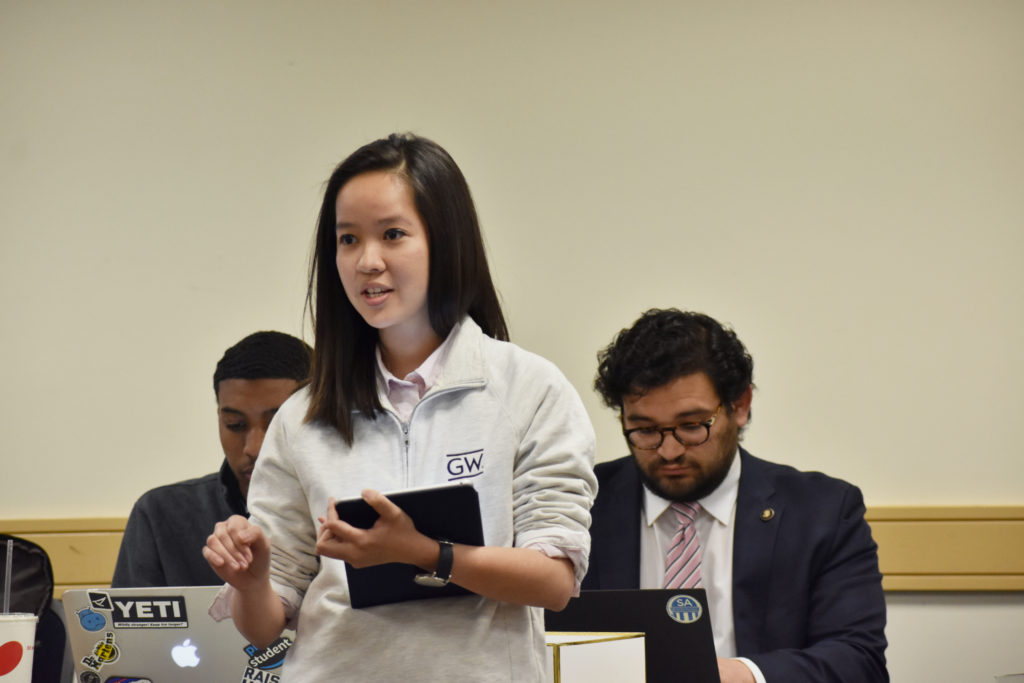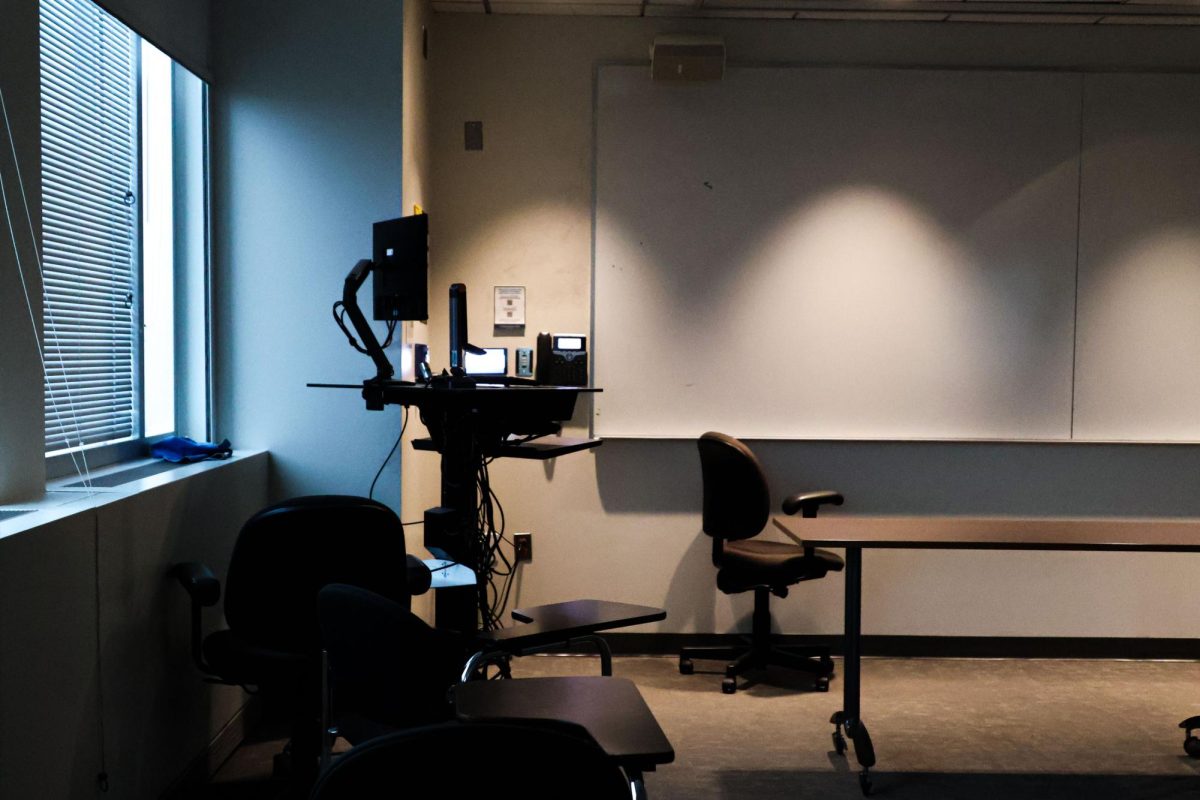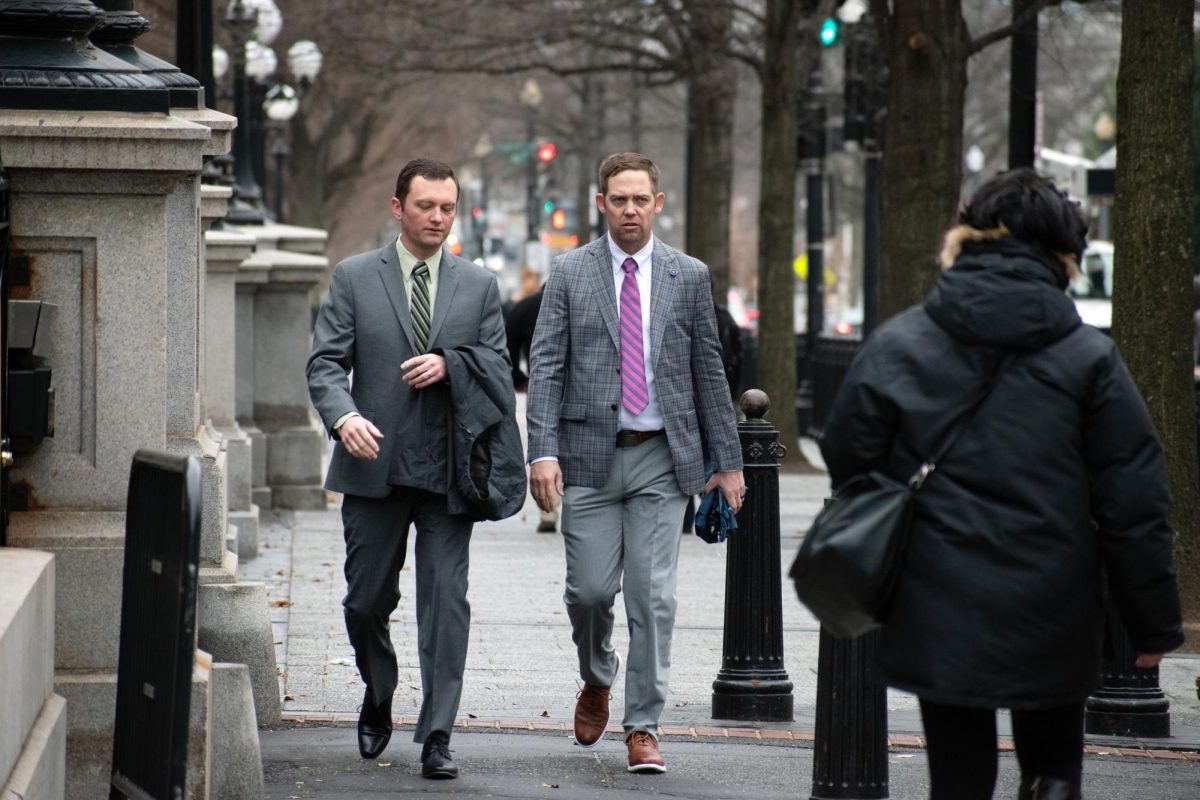Updated: Nov. 4, 2019 at 11:04 a.m.
Student Association leaders presented recommendations to amend GW’s building naming policies to officials last spring.
The proposed guidelines state that officials should revoke any building name if the individual after whom the building was renamed has engaged in behavior “inconsistent” with GW’s values that “jeopardizes the University’s reputation and public trust,” according to the document obtained by The Hatchet. The suggested rules come months after SA leaders revived a task force to evaluate controversial building names on campus, like the Marvin Center.
University spokeswoman Crystal Nosal did not return a request for comment about what the University’s policy is on changing the name of a building named for a donor. She did not return a request for comment about whether it is possible to change the names of buildings renamed after donors or where that procedure is codified if one exists.
She said a task force to examine renaming buildings is in “development.”
“The specifics of the task force, its charge and membership will be announced in the coming days,” Nosal said in an email.
When naming a building after an honoree, student leaders recommended that officials should consider the honoree’s “commitment” to GW’s academic mission and upholding the University’s reputation as a “preeminent” research institution, according to the document.
The guidelines propose that the honoree should demonstrate “notable achievement” in at least two of three areas: distinction in their professional, scholarly, intellectual or creative field; service or contributions to the University and commitment to social responsibility, measured through actions like public service or advocacy for civil rights.
“Before entering into an agreement to name a building or space after an individual, the George Washington University will carefully consider the prospective honoree’s strength of character as demonstrated by his or her integrity, dignity and work ethic,” the document states.
Former Student Association President Ashley Le said she is not aware of any current University policy about building naming or renaming.
Le said she did not personally present the recommendations to officials, but University President Thomas LeBlanc told her that he would take the proposed guidelines under “advisement” after task force leaders presented him with the report in the spring.
Le added that she is “encouraged” by officials’ efforts to create a task force focused on building renaming, as the issue is important to many students.
“Sometimes it can be a very symbolic gesture, and it doesn’t affect the student experience directly in any way,” Le said about building namings. “But I think that what we call them matters a lot to students, especially when the name carries with it such a lot of meaning.”





